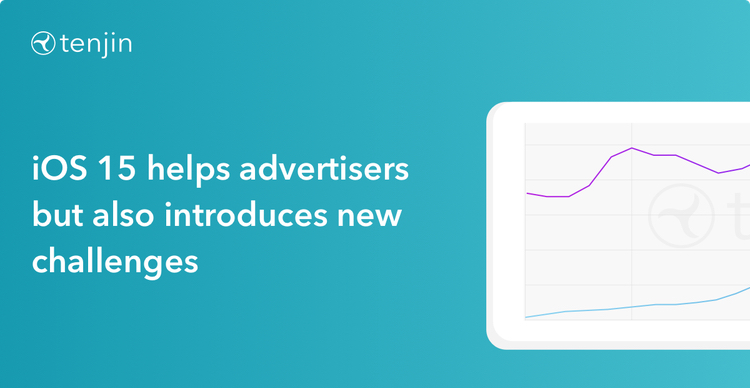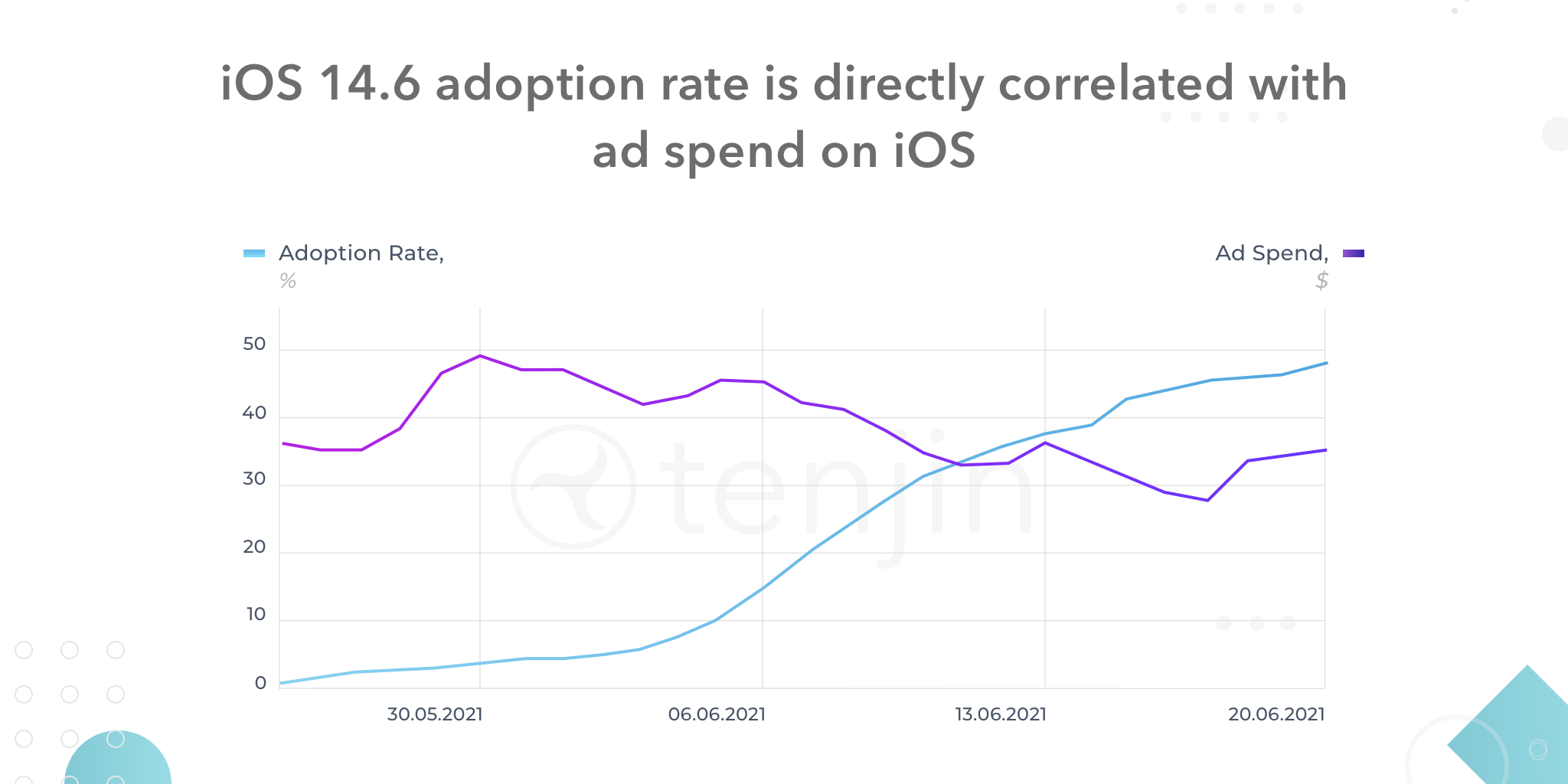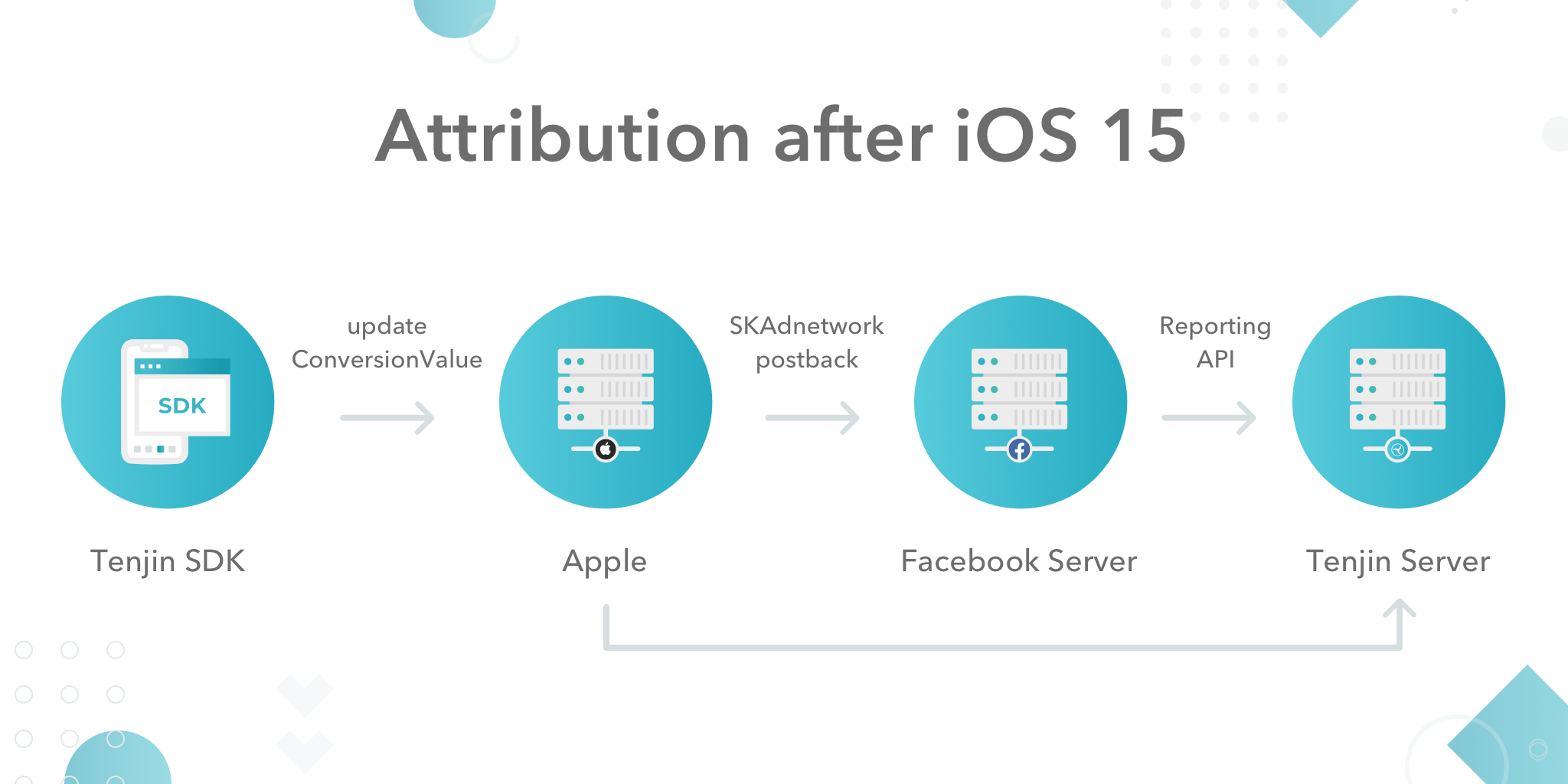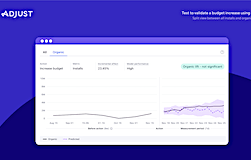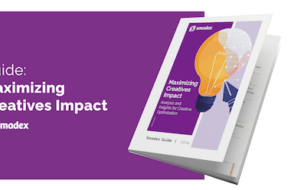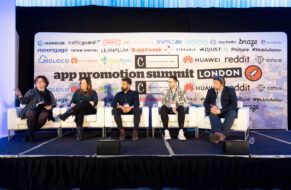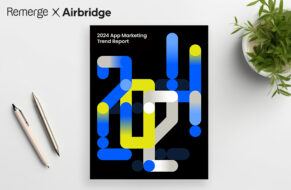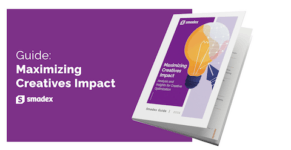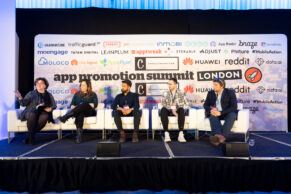The adoption rate of iOS 14.6 is reaching the 50% mark. Not surprisingly, there is a direct correlation between the adoption rates and the ad spend (detailed graph is available in the post). A lot of it is due to the reluctance of advertisers to spend significant amounts of budgets on SKAdNetwork. Instead of iOS, developers are using their budgets to promote Android apps which are more measurable.However, there is a light at the end of the tunnel or at least some good news – after iOS 15, advertisers can receive copies of SKAdNetwork postbacks.
This article was first published on Tenjin blog.
The signs indicate that iOS spend will continue to decrease until advertisers figure out how to run profitable campaigns via SKAdNetwork. Of course, a crucial part in how this plays out is how SKAdNetwork evolves. The recently announced option to send postbacks to advertisers is definitely a step in the right direction for providing additional transparency.
iOS 15 is making SKAdNetwork more transparent for advertisers
WWDC 2021 brought a big and long-awaited SKAdNetwork announcement. After iOS 15 goes live, there will be an option for advertisers to directly receive a copy of any SKAdNetwork postback (source). Originally, SKAdNetwork postbacks were exclusively available to ad networks. This helps for a number of reasons:
- Developers are able to see more granular postback data in their data warehouses or DataVault if using Tenjin
- Developers are able to verify what ad networks are receiving for billing and invoicing
With this new update, Apple cements its status as the only provider of attribution data and accelerates the change in role for SANs like Facebook. Additionally, MMPs will start changing their roles talked about here. In iOS 15, any developer can consume install attribution postbacks on iOS, regardless of company size. SANs don’t have many arguments to be self attributing anymore. Developers can build an infrastructure to capture, process, and analyze the SKAdNetwork postback data without worrying that SANs are grading their own homework.
New versions of iOS are usually released in autumn, most likely in September. This is going to be a positive update and one worth looking forward to. However, bear in mind that more data brings more challenges. Tenjin will be building relevant infrastructure for this release so that developers are able to capture and analyze all of this more easily.
Data reconciliation is going to be the main challenge of iOS 15
iOS 15 brings transparency to SKAdNetwork datasets, but that doesn’t mean that shiny UA reports of the pre-iOS 14 times are back. Advertisers are left with scattered data puzzle pieces that they need to assemble themselves. Here is a simple example:
A SKAdNetwork campaign id is different from an ad network campaign id. SKAdNetwork has attribution data, while ad network has ad spend and their own campaign meta data. You will need to map them together if you want to calculate a simple metric like CPI on campaign dimension. Ad networks can calculate these for you, but something tells me that advertisers will want to do it in-house with the data that they have received from Apple to verify that advertisers are not getting charged for things that are invalid.
Another example is a bit more complicated. One of the few good things about the SKAdNetwork for performance marketing is source-app-id data. Traditionally, third party ad networks do not disclose their app sources, and it turned out that the introduction of the SKAdNetwork by Apple was not going to change their mind. Ad networks are still not willing to share the source app-id data in SKAdNetworks postbacks to developers or MMPs. However, iOS 15 does allow advertisers to get this data directly from Apple so they are able to use the source-app meta data. Joining these sets together will be up to the developer but at least there is the option available.
At Tenjin, we want to make sure that this data helps app publishers make educated decisions around their UA campaigns. And this requires not only storing the data, but also providing tools and training to reconcile new data sets around spend aggregation, SKAdNetwork, and deterministic attribution.
We have already engaged with some of our customers to learn about their ideas for data analysis after iOS 15. Feel free to drop us an email at info@tenjin.com, if there are certain product features that you want to see in our iOS 15 roadmap.


